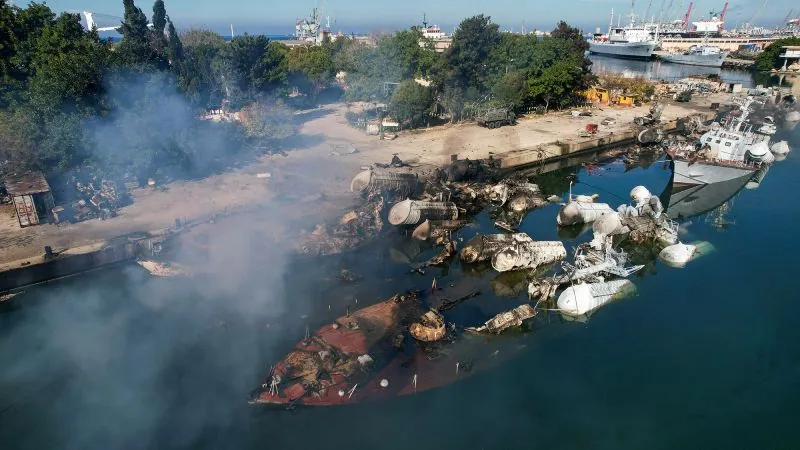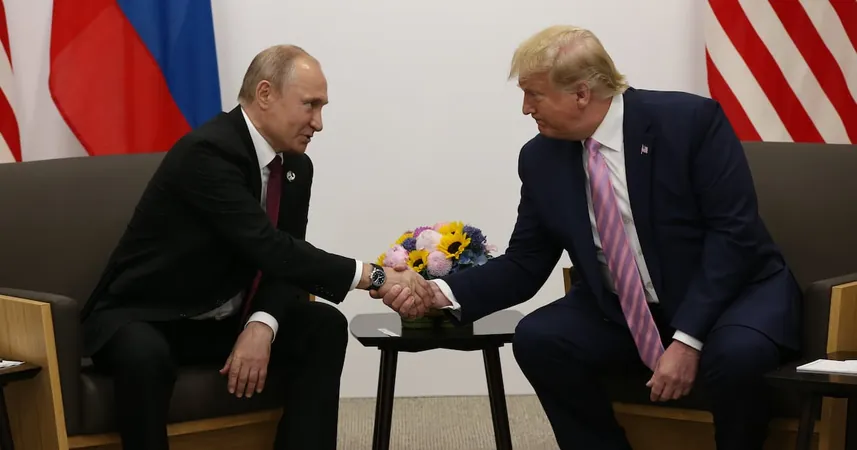
Israel Escalates Military Operations in Syria: Netanyahu Claims "Changing the Face" of the Middle East
2024-12-10
Author: Ling
Tensions in the Middle East surge as Israel responds aggressively to the escalating instability in Syria, with Prime Minister Benjamin Netanyahu vowing to significantly alter the region's geopolitical landscape. In a remarkable shift, the Israeli military has executed airstrikes targeting Syrian military installations and deployed ground forces into the demilitarized buffer zone on the Syrian-Israeli border for the first time in half a century.
During a press conference, Netanyahu framed the disintegration of Bashar al-Assad’s regime as a "new and dramatic chapter" in the Middle East's history. He asserted that the downfall of Assad was directly linked to Israel’s strikes against Iranian-backed militant groups such as Hamas and Hezbollah. “We are changing the face of the Middle East,” he stated, highlighting Israel’s role in the power dynamics of the region.
While Israeli officials celebrate the weakening of a regime aligned with Iran, they remain deeply concerned about the potential rise of extremist groups should radical Islamists gain control over the chaos in Syria, particularly given its proximity to the Israeli-occupied Golan Heights.
Foreign Minister Gideon Sa’ar emphasized the necessity of these operations, stating that the Israeli military targets were housing chemical weapons and long-range missiles. “It is imperative that these do not fall into the hands of extremists,” he remarked, reinforcing Israel's commitment to protecting its national security in a volatile environment.
Reports from Damascus indicate that the airstrikes have intensified, with residents describing the bombing campaign as the most severe witnessed in the city in over a decade. An early morning assault reportedly led to significant destruction, including the decimation of military vessels at the naval port in Latakia, as confirmed by photographic evidence.
Critics from several Arab nations accuse Israel of taking advantage of Syria's turmoil to assert control over territories. The Arab League condemned these actions as opportunistic, while Egypt denounced the military maneuvers as an exploitation of Syria's internal crisis for land acquisition.
Conflicting narratives surround the extent of Israeli ground operations, with military spokesperson Nadav Shoshani downplaying claims of advancing towards Damascus while confirming that Israeli forces are indeed operating beyond the long-established buffer zone. Defense Minister Israel Katz described these movements as part of creating a “security zone free of heavy strategic weapons and terrorist infrastructures” to safeguard Israel’s borders.
Israeli operations have reportedly reached as far as Beqaasem, just 25 kilometers from Syria’s capital. This area is strategically significant, given its proximity to Mount Hermon, a crucial vantage point that has been a focal point of territorial conflict.
The situation remains fluid as Israeli forces consolidate their position, responding to both immediate threats and broader strategic challenges. While Netanyahu’s government has assured that these operations are limited and temporary, the long-term implications for regional stability and international law remain uncertain, with many wondering how far Israel is willing to push its territorial claims.
As the situation continues to develop, world leaders and analysts are closely monitoring Israel's next moves in this high-stakes geopolitical chess game. What will be the consequences of this dramatic escalation? One thing is clear: the Middle East's future hangs in the balance.





 Brasil (PT)
Brasil (PT)
 Canada (EN)
Canada (EN)
 Chile (ES)
Chile (ES)
 España (ES)
España (ES)
 France (FR)
France (FR)
 Hong Kong (EN)
Hong Kong (EN)
 Italia (IT)
Italia (IT)
 日本 (JA)
日本 (JA)
 Magyarország (HU)
Magyarország (HU)
 Norge (NO)
Norge (NO)
 Polska (PL)
Polska (PL)
 Schweiz (DE)
Schweiz (DE)
 Singapore (EN)
Singapore (EN)
 Sverige (SV)
Sverige (SV)
 Suomi (FI)
Suomi (FI)
 Türkiye (TR)
Türkiye (TR)